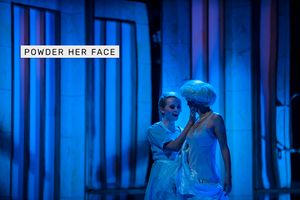Opera by Thomas Adès
Production of Gerhart-Hauptmann-Theater Görlitz-Zittau, 2017
While chatting backstage during the overture on the premiere performance, a colleague confessed he was worried about whether or not the audience would "like" the opera in light of its provocative subject matter. In the moments before we took our places on stage, I answered that this is an art piece that will challenge people, and whether the response is negative or positive is not important to the presentation of the work. Looking back, I still stand by this statement, though I very much doubt whether it provided any encouragement to my colleague at the time. While Thomas Adès' Powder Her Face is often characterized in the operatic repertoire as a nymphomaniacal socialite's fall from grace, I would argue that it is equally a statement on the effects of social mobbing by popular culture.
Based on the life of Margaret Campbell, Duchess of Argyll, each scene in Powder Her Face takes place during different time periods as they relate to certain milestones in her life, namely the events leading up to and following her very public divorce trial. The first and final scenes of the opera are set in her hotel residence in the year 1990 and consequently the hotel staff transform into different figures of her past in the intermediate scenes. Because the scenes that take place previous to 1990 are recollections of the Duchess' past, in the production I was involved in directed by Dorotty Szalma in 2017, the hotel set remained the same throughout the opera, with only some costume and prop alterations to illustrate character and time changes. The notoriety of this piece is partly due to several productions over-sexualizing its presentation, and what I admired about Dorotty's stage direction was that it addressed the sexual themes minimally, giving an entry point for the audience to take in other interpretive layers within the opera.

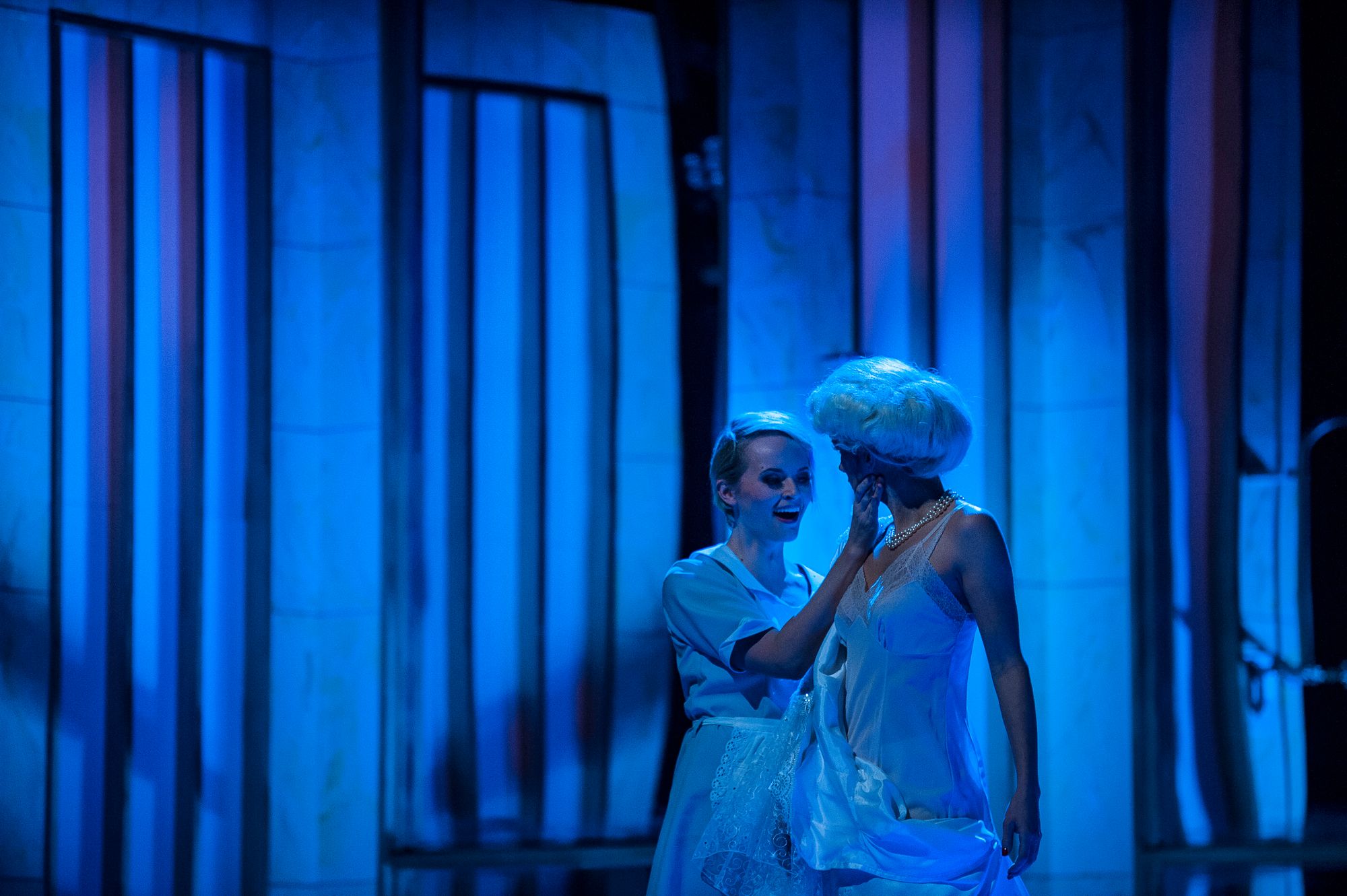


Part of what has drawn me specifically to contemporary opera is in how much interpretive freedom singers can have with musical notation that implements Sprechstimme and ghost notes. In terms of music as communication, it is a very effective expressive device within vocal music. In more standard coloratura soprano repertoire, exclamations of emotion are often represented as vocalises on "ah" (indeed, it is probably a third of what we sing!). These vocal lines are aesthetically beautiful, but historically exist more as an opportunity for the singer to display technical virtuosity. Sacrificing beauty of tone - most especially in bel canto repertoire - even on the shortest "ah!", for the sake of giving a character more emotional depth and nuance, is viewed as a sacrilege of performance style. Unsurprisingly then, having permission in this case to alternate operatic singing with musical speech was a hugely satisfying creative exercise.
While at this point it may seem like I am referencing an opera renowned for its musical representation of oral sex to launch into a dialogue on what is expressive singing, I think I will play it safe and return to my original thesis! Perhaps what is difficult for people to digest in Powder Her Face is that despite how difficult it is for an audience to sympathize with such a problematic central character, the libretto and music do not make it easy to simply dismiss the duchess' fate as karmic or deserved. What became obvious once we began staging rehearsals is that every character Margaret Campbell interacts with throughout the opera is equally as unsympathetic as she. The duchess is ridiculed from the onset by the maid and electrician, flirted with and then directly gossiped about by her confidantes, obsessed over by the waitress and mistress sleeping with her husband, and sensationalized by the judge and media figures following her divorce scandal. Moreover, any kindness towards her is at least partially motivated by whatever benefit can be received in return.
Countless social figures in the years since Margaret Campbell have experienced similar downfalls under such a degree of public attention. While I would not categorize her as a victim of circumstance, considering the extent to which society idolizes wealth and status, the people around her contributed as much towards her undoing as she did through her lifestyle and character. Whatever an audience's feelings are towards Margaret Campbell or the opera that narrates part of her history, Powder Her Face very clearly foreshadowed celebrity as we know it today.
Director: Dorotty Szalma
Conductor: Andrea Sanguinetti
Gerhart Hauptmann-Theater Görlitz-Zittau
Cast: Patricia Bänsch (Duchess), Alison Scherzer (Maid), Tobias Pfülb (Hotel Manager), Thembi Nkosi (Electrician)
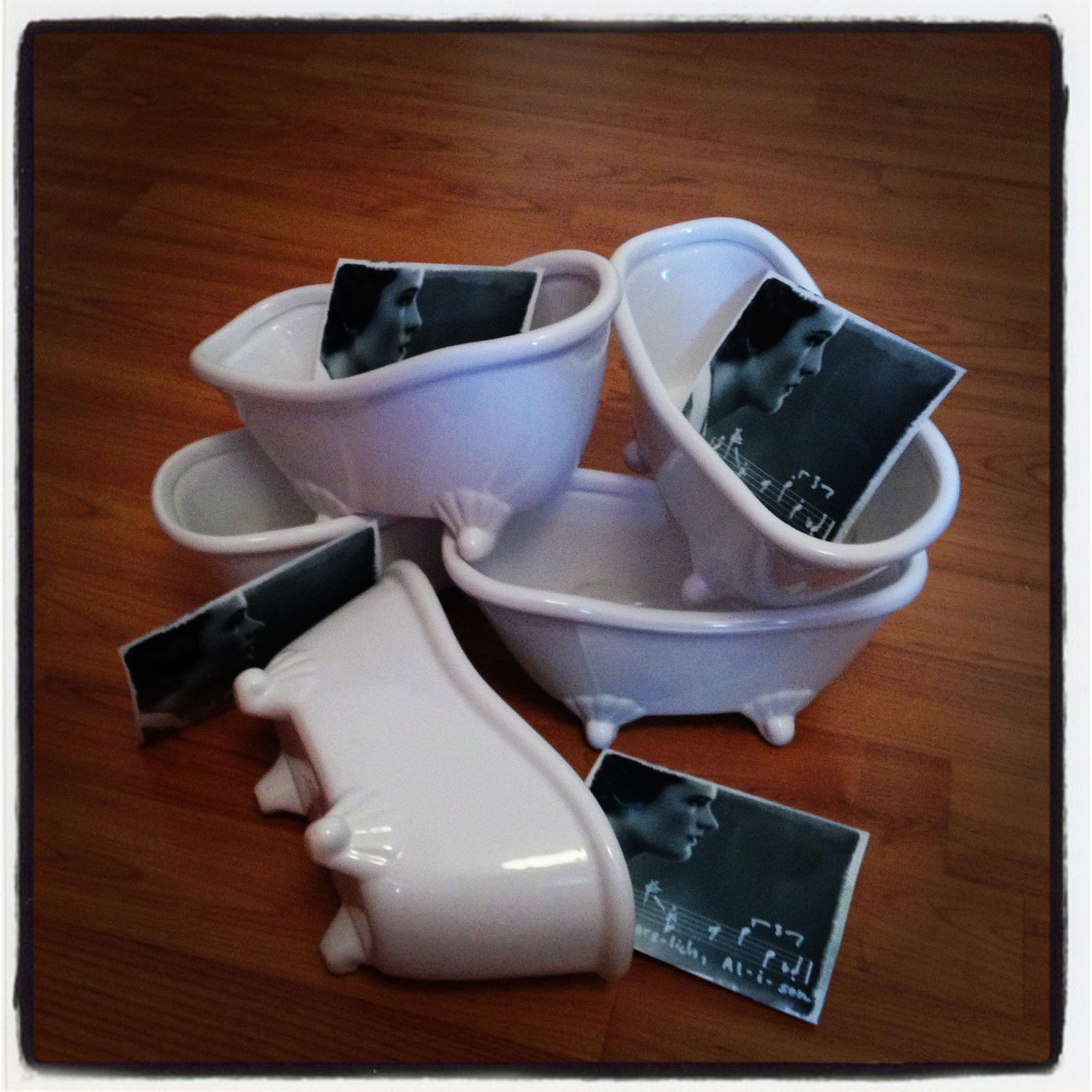
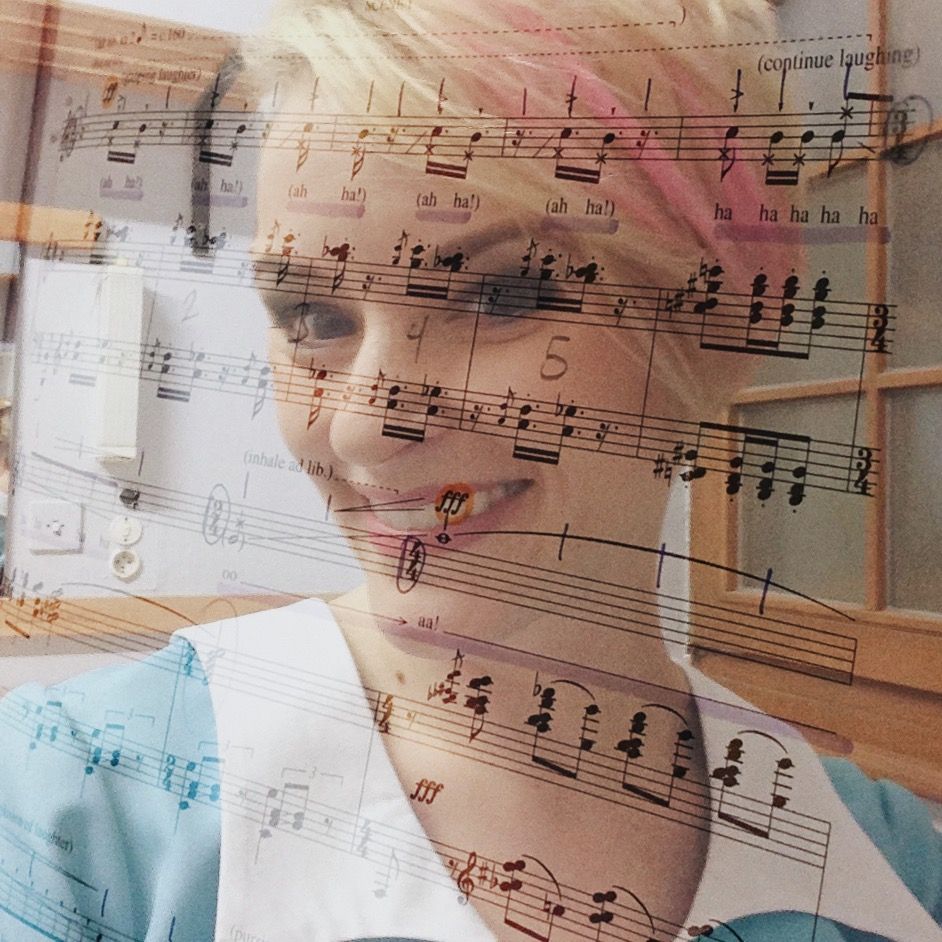
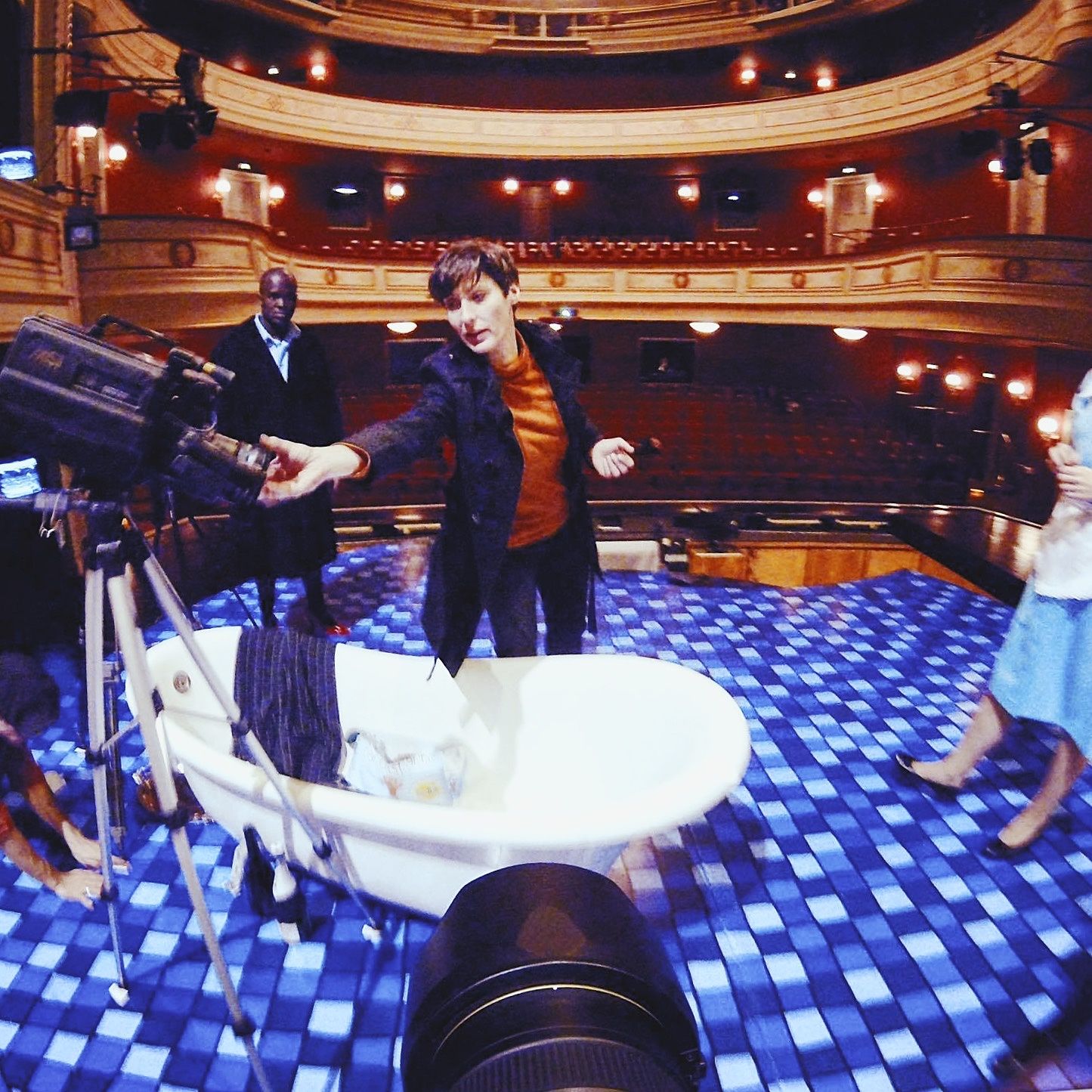
Press
"Ein keckes Zimmermädchen wie eine devote Klatschjournalistin werden von Alison Scherzer zum Leben erweckt. Während Scherzer in höchste Sopranhöhen vorstößt..."
Martin Morgenstern, Sächsische Zeitung



